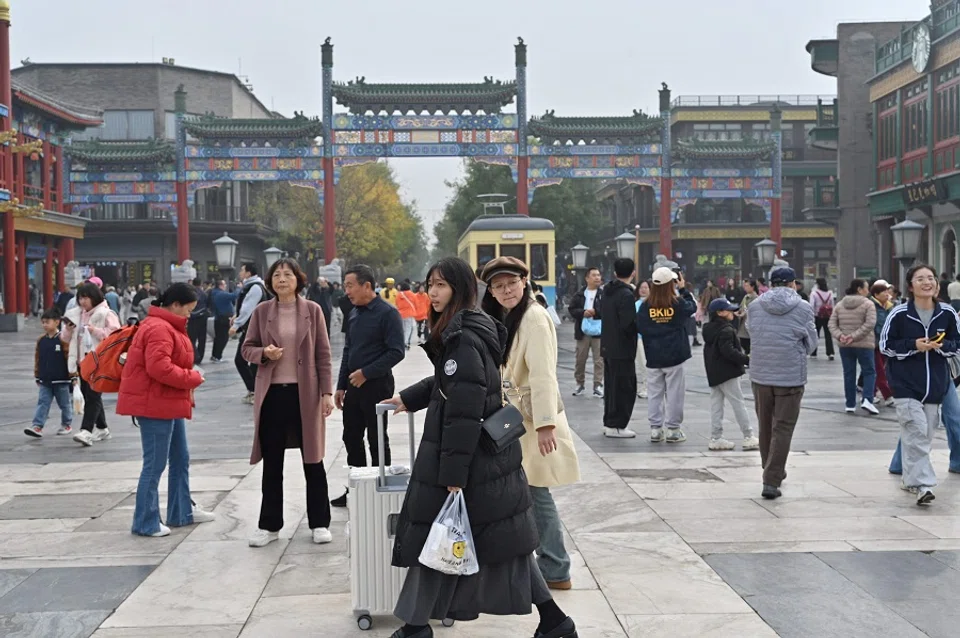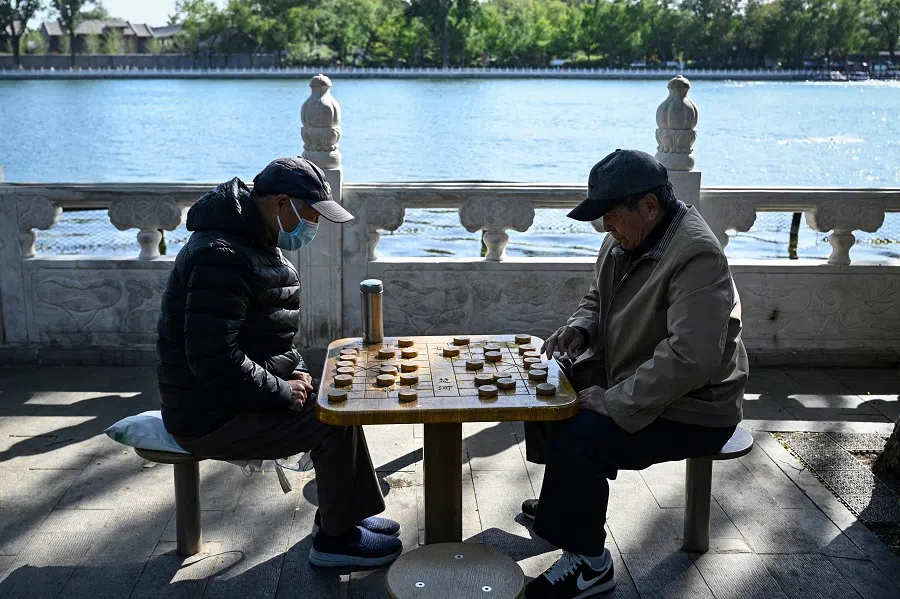How can China rethink its history of humiliation?
Chinese commentator Jun Ma believes that when considering a nation’s history of humiliation, we should adhere to one principle: set aside the nation in question and focus on the sin and crime involved.

How a nation and its people confront the relatively clear collective memory of their modern history, especially its periods of humiliation, is a universal challenge.
Official textbooks in China emphasise the humiliating periods of its modern history, particularly the Japanese invasion. This emphasis seemingly aims to galvanise collective will. But does it truly achieve this?
What purpose does this galvanised will serve? Can the history of humiliation offer valuable lessons for a nation’s future? And how should national humiliation and its associated “enemies” be viewed in the present day?
Influence of public opinion
I was born in the 1970s in a port city in northern China. Among my vague memories of childhood, Japanese television dramas such as Moero Attack and Akai Giwaku were particularly vivid, even more so than the imported Western movies and television dramas.
By the 1990s, the cultural wave from Hong Kong and Taiwan spread north, bringing along bell-bottoms, novelist Jin Yong, the Four Heavenly Kings — Jacky Cheung, Andy Lau, Leon Lai and Aaron Kwok — and boy band Xiao Hu Dui (Little Tigers).
The influence of modern Japanese culture in northern China had significantly weakened, replaced by the repeated media portrayals of the 14 years of war from 1931 to 1945, such as through films like Don’t Cry, Nanking (1995) and Massacre in Nanjing (1987), as well as the occasional reports about Chinese civil groups claiming reparations from the Japanese government.
... there is often just one voice in Chinese public opinion on any given issue, something the government has characterised as “harmonious”. This clearly does not align with the inherent nature of “diversity” of society and individuals.

During this period, pragmatic Sino-Japanese governmental cooperation, such as Japan’s Official Development Assistance (ODA) to China beginning in 1979, received little attention from the Chinese public. Was this a deliberate oversight or intentional misrepresentation?
While the Chinese government’s intentions were unclear at the time, the consequences are evident three decades later. One cannot help but reflect on the social and psychological factors that fuelled frequent incidents of harm against Japanese individuals and Japanese-related properties in China, as well as the inexplicable hostility towards Japanese-style clothing in some public spaces.
While the formation of social psychology is complex, public opinion undeniably plays a significant role. Over the past decade, China has strictly controlled public opinion through media content, books, historical narratives and portrayals of political and economic events and figures.
Consequently, there is often just one voice in Chinese public opinion on any given issue, something the government has characterised as “harmonious”. This clearly does not align with the inherent nature of “diversity” of society and individuals. As the late Chinese Communist Party leader Deng Xiaoping said, this approach deviates from the principle of “seeking truth from facts”.
Realistic responses of victims
These external factors act as a “black curtain”, obscuring facts and limiting the perspectives available to individuals. Even without such interference, discerning truth can be challenging; with deliberate obfuscation and filtering, it becomes even more so.

Popular American talk show host Ronny Chieng, a Malaysian Chinese who was educated in Singapore, once posed an intriguing question on his show: how did Japan, in just one generation, transform from a society obsessed with brutal human experimentation, to one that is polite and enjoys playing Pokemon?
I also pondered this question, because it ran counter to the mainstream information that my generation was exposed to growing up in China. It was also something that gnawed at me when I first encountered fellow Japanese students as a graduate student in the US. This unhealthy Chinese social psychology should not be normalised — we must actively work to remove this psychological thorn.
The thorn does not only exist in the historical gaps and political and economic exchanges between China and Japan. When discussing the relationship between Jews and Germans after the Second World War, German-Jewish writer Yascha Mounk described several realistic responses to this “victim” social psychology: forgetting the past to live in the present, leaving and never returning to the scene of victimisation, and engaging in debates to uncover the truth.
Mounk chose to leave Germany and never step foot there again. But does this really work? In the US, he still encountered the same socio-psychological dilemmas within intellectual circles, even when the other parties were neither Germans nor Jews.
The notion of “a nation’s history of humiliation” is like a telescope that limits both the breadth and clarity of vision. On the surface, it seems to be far-sighted, one that tug at the heartstrings. In reality, it fosters a shallow and narrow outlook.
Criminal motivations of totalitarian groups
Aside from the “black curtain” of political factors, when considering a nation’s history of humiliation, we should adhere to one principle: set aside the nation in question and focus on the sin and crime involved.
From the perspective of shared human values, war crimes such as the Holocaust, the Nanjing Massacre and the Bataan Death March share common characteristics: they trample on the shared values of good and evil in modern human society; they violate the laws of specific areas of human society; and they are pure evil. German philosopher Hannah Arendt once said that evil is always extreme but never fundamental (Hannah Arendt: Critical Lives).
A closer examination of these crimes against humanity reveals common and more covert motivations among the instigators. These include economic factors (such as cutting provisions for prisoners of war to discourage resistance), incitement (such as manipulating people into committing crimes and diverting social crises), and utilitarian motives (such as unleashing the primal nature and aggression of soldiers).

These sins and crimes are not unique to Nazi Germany or fascist Japan. Any totalitarian regime absent of checks and balances has the potential and motivation for such criminal acts, and pose a significant threat to modern civilisation for all of humanity.
Limited perspective and outlook
When we focus on a particular nation and attempt to wave the banner of “nationalism”, everything becomes obscured and filtered by complexity and emotion. This is not only because “nation” is a long and complex historical evolutionary process, but also because it is a concept that carries strong emotional connotations.
Strictly speaking, “nation” and “a history of humiliation” are two concepts that should not be intertwined, as the makeup of a nation changes constantly throughout history. The sins and crimes reflected in a history of humiliation are not inherently directed at a specific race, but at “humanity”.
If there is an attempt to deliberately cultivate and shape a history of national or even racial hatred through manipulating public opinion, driven by dark and ulterior political aims, it can only lead to a narrow and distorted social psychology.
For example, the crimes against humanity committed by the former fascist Japanese military were not only against the Chinese; they also targeted Koreans, Southeast Asians, Australians, British, Americans and even anti-war activists within Japan. In Europe, Nazi Germany not only massacred Jews but also perpetrated genocide against the Romani people. These crimes have more fundamental and ulterior motivations.
The notion of “a nation’s history of humiliation” is like a telescope that limits both the breadth and clarity of vision. On the surface, it seems to be far-sighted, one that tug at the heartstrings. In reality, it fosters a shallow and narrow outlook.
“The noble man is always at ease with himself. The inferior man is always anxious” (君子坦荡荡,小人长戚戚) — becoming obsessed with a history of humiliation, or even distorting it into a “history of hatred” in social discourse is characteristic of Confucius’s “inferior man”, constantly agitated and anxious about imaginary problems.

If there is an attempt to deliberately cultivate and shape a history of national or even racial hatred through manipulating public opinion, driven by dark and ulterior political aims, it can only lead to a narrow and distorted social psychology. Each person would be enveloped in hatred and bogged down by the burden of history, which totalitarian regimes can exploit.
Such ideology would delay and hinder us from seeing clearly the sins and crimes committed against “humanity” and “human rights” in those historical events, and could even make it impossible to form such an insight. Is this not one of the reasons why war crimes against humanity repeatedly occur in human society? Take a look at the Israel-Hamas conflict in the Middle East region — the same crime under a different name continues to be rampant in the world.
This article was first published in Lianhe Zaobao as “如何从“民族屈辱史”中走出来?”.



![[Big read] When the Arctic opens, what happens to Singapore?](https://cassette.sphdigital.com.sg/image/thinkchina/da65edebca34645c711c55e83e9877109b3c53847ebb1305573974651df1d13a)

![[Video] George Yeo: America’s deep pain — and why China won’t colonise](https://cassette.sphdigital.com.sg/image/thinkchina/15083e45d96c12390bdea6af2daf19fd9fcd875aa44a0f92796f34e3dad561cc)